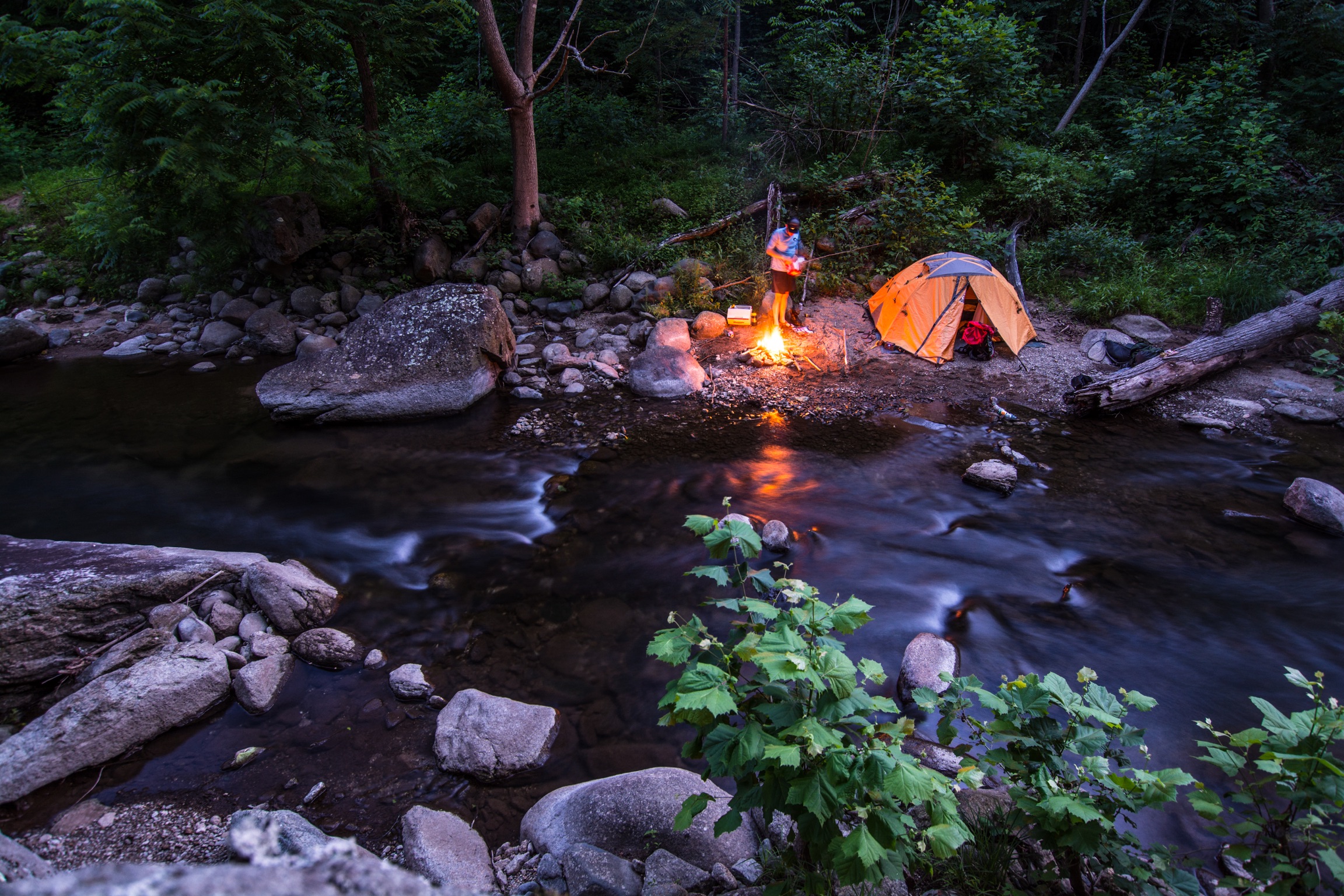Picking a destination away from home to camp and fish is a great way to discover new water and see some of the natural beauty that makes the sport so enjoyable. Here are a few things to help ensure your trip doesn’t suck.
New Water, New Regulations
Always be sure to research these things ahead of time (fly fishing only waters, whether or not felt soles are legal, season dates, etc.) The internet and local shops are great tools for keeping yourself out of trouble in a new area. In addition, if you are traveling out of state, don’t forget to buy a new license accordingly. If you do this online in advance, make sure you buy the license for the correct dates of your stay.
Do Your Homework
Thanks to the technological advancements of modern man, there is an abundance of information instantly available to anyone with an internet connection. This means that you should set aside some time before your trip to learn about the water you’re fishing. Is the area known for any specific hatches at the time of your trip? What is the ideal rod/line set-up for the species you’re targeting? Are there any guide shops in the area to find out what areas have been productive lately? Putting in a little work beforehand can help ensure success, and make you a much happier camper.

Checking It Twice
Make a list. Nothing is worse than buying gear you already own because you forgot it at home. Unlike your usual day trip essentials, you must now account for sleeping and eating away from home (tent, sleeping bag & pad, stove, fuel, toilet paper… be thorough). Especially when car camping and you have space to spare, backup gear should be added. It could save your trip. Also, having warm and dry clothing is invaluable after an unexpected swim, rain, or the nighttime temps are lower than anticipated. Planning meals is helpful when there is uncertainty about the nearest grocery store, depending on how remote the destination is. So, be generous when loading up the cooler at home.

Get the Full Experience
With nothing to do but fish, you may find that you work the water more thoroughly, and ditch the “hurry up and fish” mentality often felt on the usual workday session. After a few fish make it to the net, you might even allow yourself to enjoy the beauty of other wildlife and your surroundings – or fall victim to the lie we all tell ourselves, one more cast… Either way, making a game plan ahead of time for the sections of water you want to hit will not only help you maximize your time fishing but allow you to explore the surrounding area and points of interests such as breweries, hiking trails, wildlife areas, restaurants, or breweries.
Whether you stay in your waders from dawn to dusk or experience a little bit of everything, a camp & cast trip is an excellent way to make some memories this season. However, you spend your time out there, make sure you know the regs, bring what you need to be comfortable, and maybe even stop to smell the roses.
Let us know your favorite place to camp in the comments!

Steve Beaulieu is a Postfly Tribe Ambassador from Vermont. When he isn’t on the water chasing anything with fins on the fly, you can find him playing the drums! Check him out on Instagram @stevenbeaulieu!
https://postflybox.com/blog/2018/10/18/invest-in-what-you-love-equity-crowdfunding-and-why-were-doing-it/
https://postflybox.com/blog/2018/06/22/how-to-maximize-solo-fishing-trips/
https://postflybox.com/blog/2018/06/06/fantasy-locations-we-wish-we-could-fish/
https://postflybox.com/blog/2018/06/19/5-tips-for-handling-trout-this-summer/




The Green River in Utah. You can either backpack it or float it